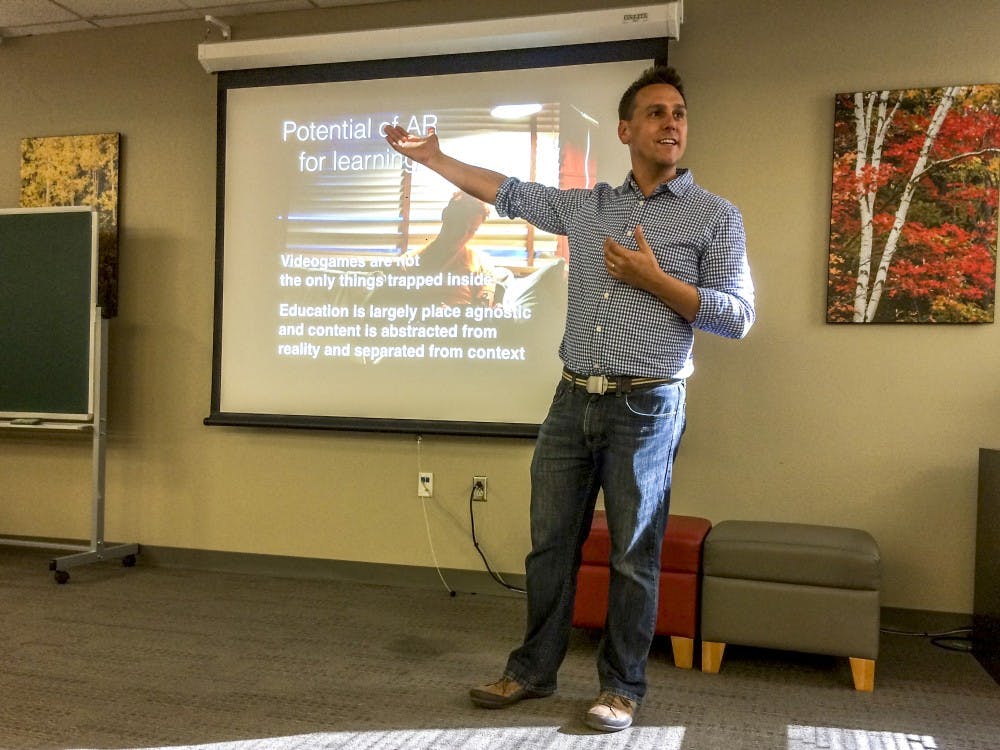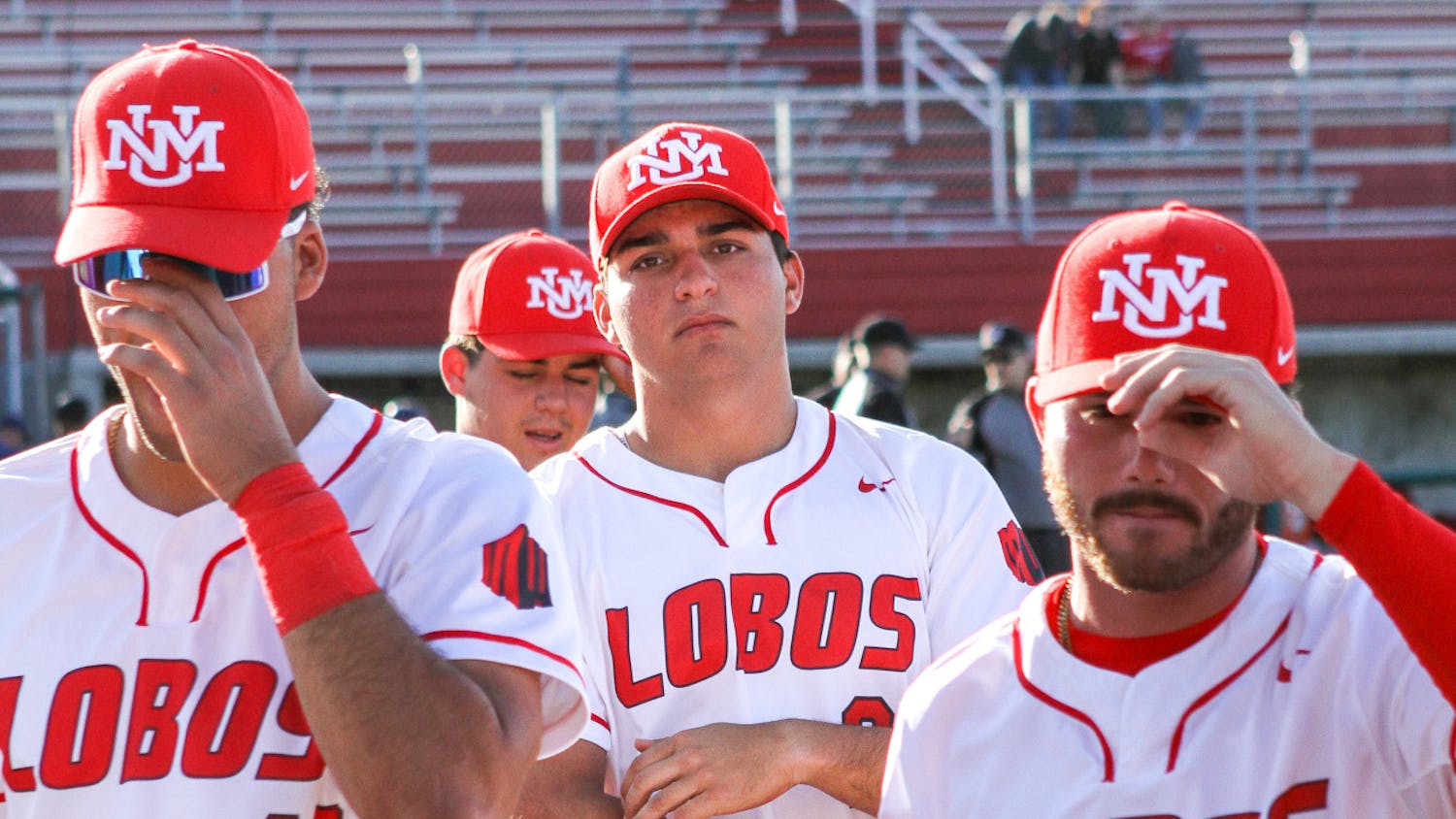Last week a UNM Honors College professor discussed the potential of mobile media, along with the blossoming augmented reality medium, as part of the Honors College Discovery Series entitled, ”Augmented Reality Games and Learning: More than just Pokemon Go.”
Associate professor Chris Holden said the aim of the lecture was to introduce and bring more students into the augmented reality field, or AR.
“In general, that’s been my mission for a decade now, and Pokemon Go seems like a good way to start that conversation,” he said. “And you can say (to students), ‘You know that game? You can make games that work like that.’”
According to WhatIs.com, augmented reality is “the integration of digital information with the user's environment in real time” — basically, the way the Terminator sees the world. Unlike virtual reality, which creates a totally artificial world, AR is the mixing of the real world with artificial elements.
What makes AR special is the connection to the outside world, Holden said, and he wants people to know what AR can do, particularly for learning situations.
For example, Holden referred to his work on a murder-mystery game called “Mentira,” made at UNM as part of the Spanish 202 curriculum.
The game’s story took place in the nearby Los Griegos neighborhood, and the gameplay involved students using AR in the actual streets portrayed in the game, working in teams to help them learn to use Spanish in a real-world situation, he said.
UNM students have made other “cool” games, Holden said — programs with diverse uses including a fossil identifier, a local graffiti catalogue and a sign language dictionary, among others.
Mikayla Marshall, a UNM freshman who attended the lecture, said she learned what AR is and how it can be used in useful ways, including educational settings.
“It helps put what you’re learning in the classroom into the real world,” she said. “You have a more general, real-world experience, rather than, ‘Oh, I learned how to speak Spanish in a classroom.’”
Holden works with individuals and groups across the world who are interested in AR, and see it as a useful tool for learning, he said.
“If we look at our classrooms, it’s a textbook, it’s a lecture, it’s grammar and vocabulary. It’s not participating in that culture,” Holden said. “The real promise of this ability of AR to intersect with place, is to take things that are unfortunately removed from real context, from actual places, from actual events — which should be connected to those — and bring them back together.”
Get content from The Daily Lobo delivered to your inbox
In his talk Holden emphasized AR as a “mode of expression” that students should be excited to take advantage of.
Not everyone was totally unfamiliar to the concept. Jesse Saunders, a sophomore electrical engineering major, said he already knew a lot about AR, but enjoyed the local spin Holden presented.
“The entirety of this whole thing is basically to try to get it to be more local and more community-based,” he said. “Instead of just, ‘Here’s a product, go out and play with it,’ you want it to be a more lasting thing which breeds community in itself.”
Holden has a collection of iPads in his office which can be used by students interested in trying out AR, or even developing a game themselves, he said.
“It’s to support people who want to experiment with this stuff,” Holden said. “To tell stories that they think they may have inside them, in a new way that other people might get to see”
Holden said he can talk all day about why games are good for learning. But beyond that, he wants students to gain interest and be involved in in the future development of AR.
“We don’t really get to dig in until the rubber meets the road and we try to make a game that accomplishes something,” he said. “Same thing in a classroom — there’s a lot that goes into making a game, there’s a lot of great things to learn.”
Matt Reisen is the news editor for the Daily Lobo. He can be reached news@dailylobo.com or on Twitter @MrMojoReisen.






